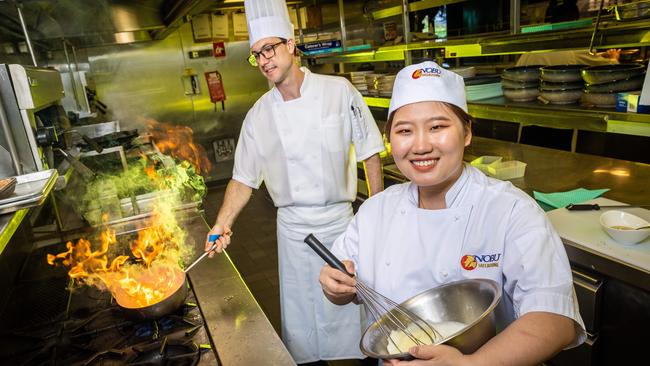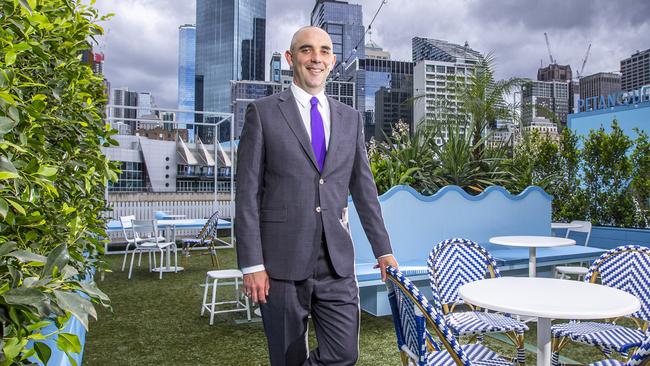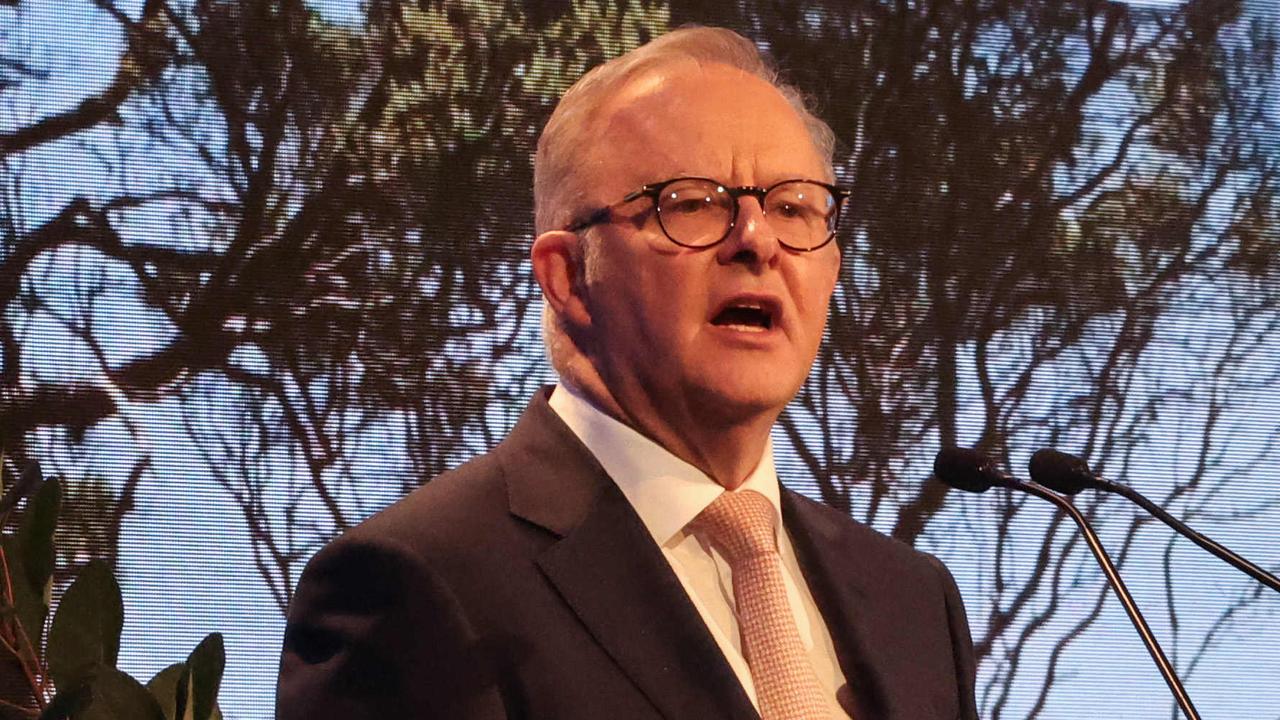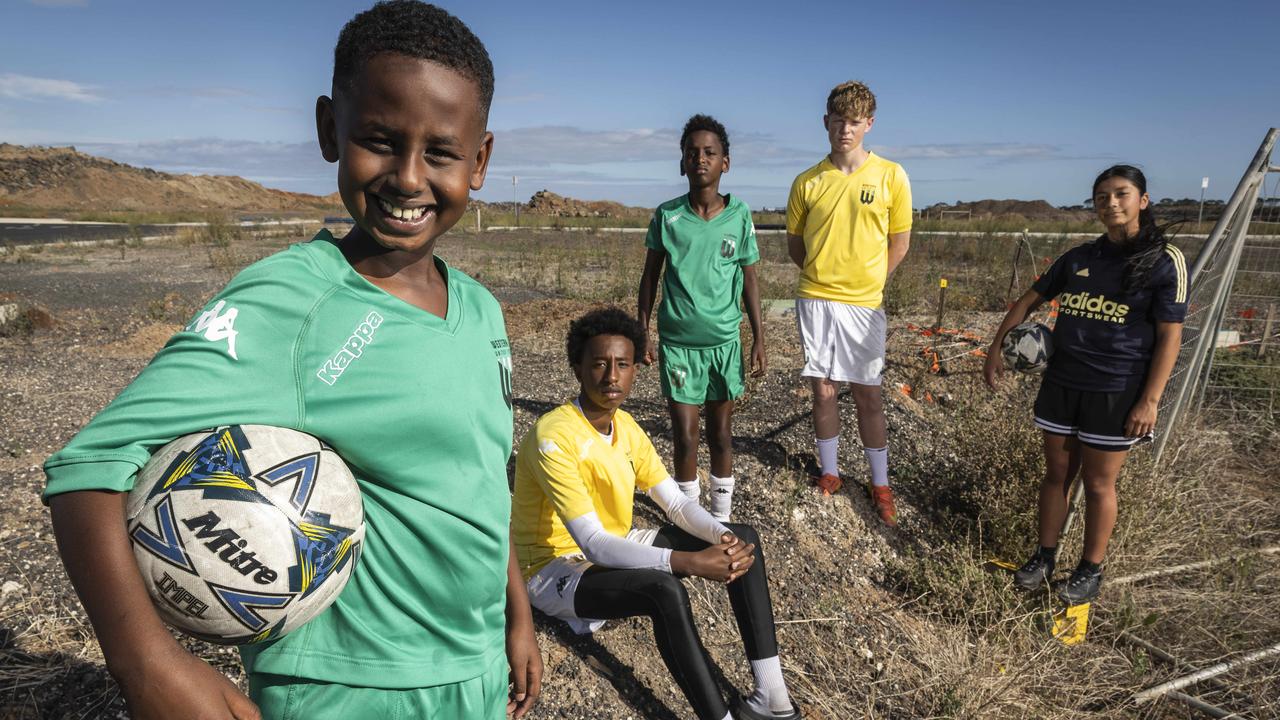Future Victoria: Leaders say Melbourne's hospitality industry needs a revolution
Calls are growing for a hospitality industry revolution to overhaul dire staff shortages or risk losing Melbourne’s status as a culinary and entertainment leader.
Future Victoria
Don't miss out on the headlines from Future Victoria. Followed categories will be added to My News.
The hospitality industry faces a revolution in bars, cafes and restaurants to rescue the ailing sector due to a shortage of at least 20,000 staff.
Young leaders are shaking up the industry as the worker shortage offers up a chance to change the sector for the better, with a stronger focus on work-life balance and careers.
But peak bodies warn governments still need to act or risk the decimation of one of the state’s most important industries.
Restaurants and Catering Industry Association chief executive Belinda Clarke said about 20,000 jobs were vacant in Victoria “and that’s just what we know of”.
Covid-19 lockdowns “pushed a lot of the workforce into the arms of other industries”, border closures sent people back to their countries of origin and visa processing delays and international student issues delayed new workers.
Another problem was the “massive drop-off at apprentice level”, Food and Wine Victoria chief executive Anthea Loucas Bosha said.
She said those shortages meant venues were reducing their opening hours because they lacked the workers to roster on and were trying to protect the staff they had.
“They can’t afford to lose staff and there’s this great opportunity for the industry to look within and make a move,” Ms Loucas Bosha said.

To help inject new workers, she said the industry needed a government advertising campaign to promote working in hospitality, much as has been done in the face of teaching and staffing shortages.
“We pride ourselves on Melbourne being a world-class food and wine destination, so we need to invest in that,” she said. “Food and drink is the No.1 reason people come to Melbourne so we need to protect that and support that.”
The RCIA’s Ms Clarke echoed this, saying it would encourage those “looking for an exciting career change – especially younger and older Australians – to consider working in a restaurant, cafe or bar”.
She also called for a “turbocharge” on visa processing, with priority on industries that were desperate for workers, and hoped recent investments in the latest federal budget would ease the problem.
Crown’s executive general manager of Food and Beverage Enda Cunningham said Melbourne’s status as Australia’s culinary and entertainment capital would be at risk “without a pipeline of world-class hospitality workers”.

And with international borders opening, Melbourne was now competing globally to retrain and attract staff.
Mr Cunningham said a partnership was needed between industry, government and schools to place hospitality “as a vocation, not just a job”.
To attract the best workers, he said the city needed to be “ripe” with new challenges and experiences for staff to “aspire to” – venues that were more experience-led, encouraged innovation, adventure and diversity in cuisine to reflect the multicultural city, like Crown’s new month-long pop-up Ministry of Crab collaboration.
“We need to rebuild our hospitality industry from the ground up, and that is going to take time,” he said.
“But we need to start now so that we are ready for the full return of tourism to our state. We need to make a career pathway in hospitality an attractive proposition for our school students and get talented young people to look seriously at a career – not just a job, but a career – in hospitality.”
For those workers already in the industry, Ms Loucas Bosha said the pandemic had led to a new wave in young hospitality talent who were “leading in a different way”, with their focus on work-life balance, having support and diversity and sustainability.
Jeremy Robins, chef de partie at Mr Hive at Crown, and Angie Zhang, pastry chef de partie at Nobu, said job vacancies meant opportunities for people to progress quickly.
“It’s up to you, it’s almost limitless,” Mr Robins said.




